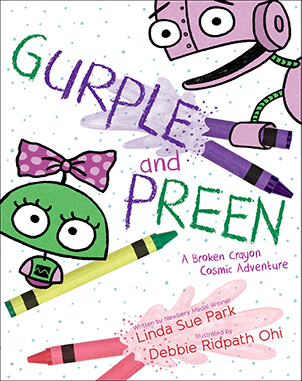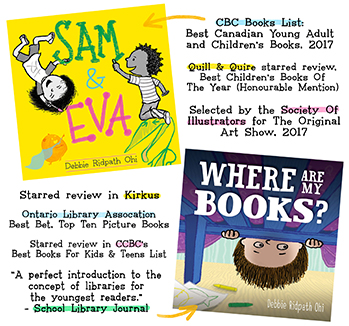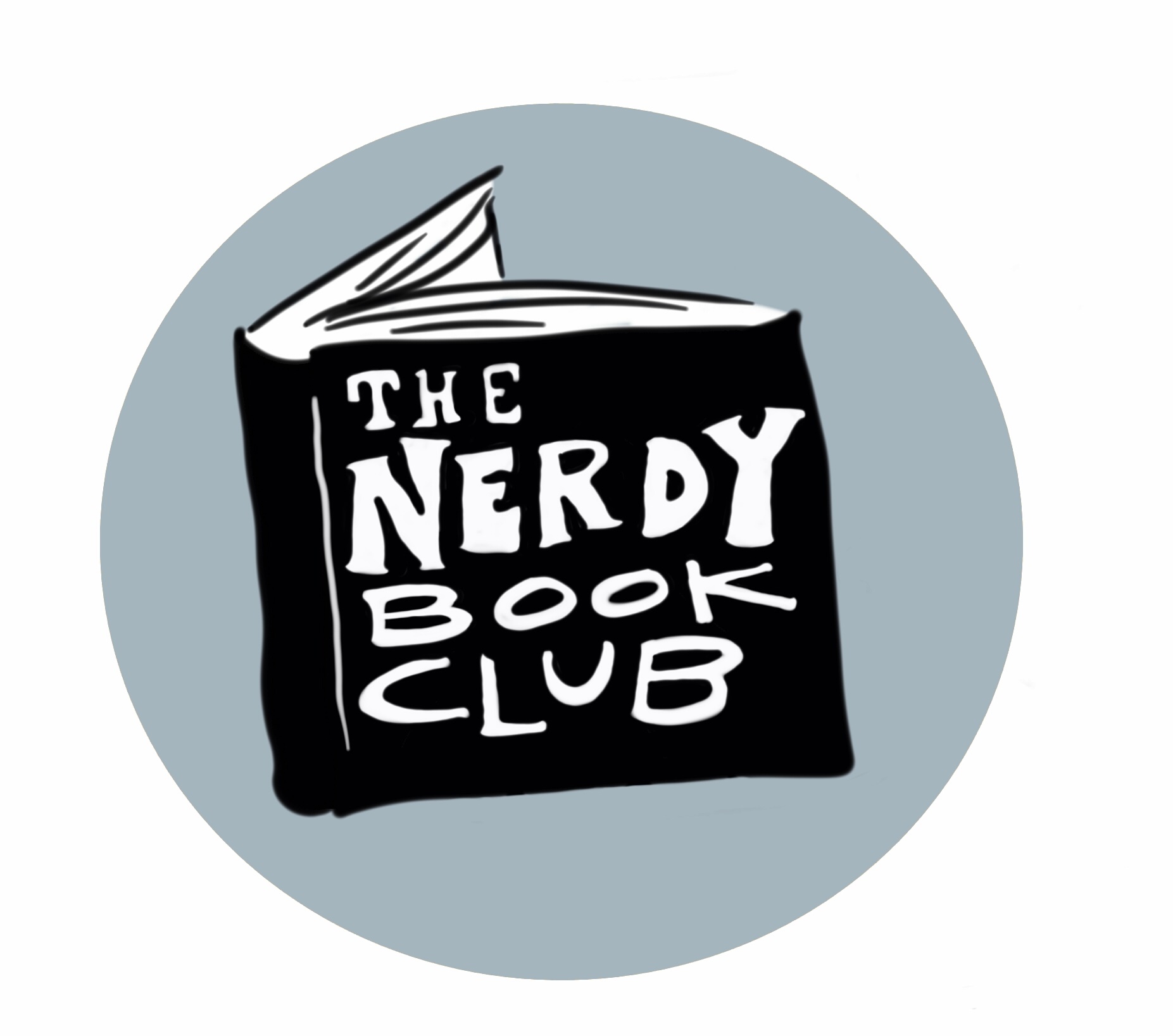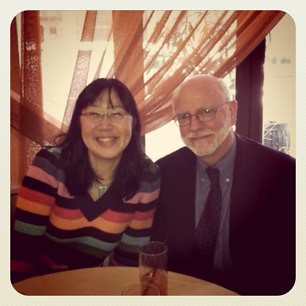Interview with Moira Allen, author and founder of Writing-World.com
Moira Allen is the editor of Writing-World.com, and has written nearly 400 articles, serving as a columnist and regular contributor for such publications as The Writer, Entrepreneur, Writer's Digest, and Byline.
 Those of you who have been following my projects from the very beginning will be familiar with Inkspot, one of the very first websites for writers. Moira initially began writing articles for my site and newsletter but I liked her work so much that I eventually recruited her for a senior editorial role. We worked together for years but didn't actually meet in person until after Inkspot was shut down (see Inkspot Epilogue).
Those of you who have been following my projects from the very beginning will be familiar with Inkspot, one of the very first websites for writers. Moira initially began writing articles for my site and newsletter but I liked her work so much that I eventually recruited her for a senior editorial role. We worked together for years but didn't actually meet in person until after Inkspot was shut down (see Inkspot Epilogue).
I was delighted when Moira launched Writing-World.com, which is now a comprehensive compilation of more than 650 excellent articles for freelance writers of all interests and every level of expertise, including resources for children's writers. The site also offers a free e-mail newsletter that includes publishing industry news, articles and contest info.
Moira is the author of eight books, including Starting Your Career as a Freelance Writer, The Writer's Guide to Queries, Pitches and Proposals, and Writing to Win: The Colossal Guide to Writing Contests. In addition to Writing-World.com, Allen hosts Mostly-Victorian.com, a growing archive of articles from Victorian periodicals, and The Pet Loss Support Page, a resource for grieving pet owners. She lives in Maryland with her husband and the obligatory writer's cat. She can be contacted at editors "at" writing-world.com.
Q. Could you please tell Inkygirl readers more about Writing-World.com?
I’ve been thinking about this question for several days, and realized that it’s not possible to talk about Writing-World.com without talking about Inkspot. I’d love to say that I had this fantastic “vision” for Writing-World.com, but the reality is that this site began as a continuation of YOUR vision.
 I don’t know if I ever told you exactly how it came about. But if you recall, toward the end of 2000, we knew that big changes were coming to Inkspot via its new owners. We assumed that the changes would take the form of laying off staff, and I assumed that my days with Inkspot were numbered. I’d loved working with Inkspot and being a part of building what was then surely the world’s largest and most popular site for writers. So I was wondering what I would do next.
I don’t know if I ever told you exactly how it came about. But if you recall, toward the end of 2000, we knew that big changes were coming to Inkspot via its new owners. We assumed that the changes would take the form of laying off staff, and I assumed that my days with Inkspot were numbered. I’d loved working with Inkspot and being a part of building what was then surely the world’s largest and most popular site for writers. So I was wondering what I would do next.
When I talked this over with my husband, he asked, “Who’s Number Two?” I thought about that, and thought that, at the time, there really wasn’t a site for writers that I would have considered a “close second” to Inkspot. There were a number of smaller, less ambitious sites, but Inkspot was certainly many lengths ahead of the rest of the field. And I thought, with the knowledge and connections I’d gained through Inkspot, I could quite probably come up with a site that would BE, at the least, Number Two for writers.
So as that year drew to a close I set about devising and designing Writing-World.com. I wanted it to be far more than just “Moira Allen’s many tips for writers” (my very first writing site was, in fact, “Tips for Writers”). I figured I would need advertisers, and I’d need to pay for articles, just as Inkspot did. I’m a firm believer that “you get what you pay for.” So many writing sites at that time couldn’t afford to actually pay for material, so they relied upon what they could get for free, and frankly, it showed.
 I had my plans ready by February 2001 – but we never imagined that, instead of just laying off staff, Inkspot would end up being shut down forever! So here I was, gearing up to be the “Number Two” writing site on the Web, and the Number One writing site suddenly was wiped of the electronic map! You, Debbie, gave Writing-World.com a huge boost by directing Inkspot’s bewildered traffic in my direction, and I was able to pump up the content of the site far more quickly than I’d ever expected by being able to take on a lot of the articles that had previously been posted on Inkspot.
I had my plans ready by February 2001 – but we never imagined that, instead of just laying off staff, Inkspot would end up being shut down forever! So here I was, gearing up to be the “Number Two” writing site on the Web, and the Number One writing site suddenly was wiped of the electronic map! You, Debbie, gave Writing-World.com a huge boost by directing Inkspot’s bewildered traffic in my direction, and I was able to pump up the content of the site far more quickly than I’d ever expected by being able to take on a lot of the articles that had previously been posted on Inkspot.
We planned to give the site time to break even – and were amazed that it turned profitable in its very first year. This has made it possible to go on as I began: By paying quality writers to produce quality material for the site.
If there’s a driving vision for the site, it’s the idea of being a place that has something to offer EVERY writer. I didn’t want to be a site just for beginners, though we do have a huge “getting started” section for both nonfiction and fiction writers. Nor did I want to be a site just for more experienced writers. It can be dangerous to try to be “all things to all people,” so I envisioned the site as being a place where a writer could enter at just about any level of expertise, and then find tips and tools to advance further in their chosen direction. If you’ve never sold an article before, you can come in through the “getting started” section and learn what you need to know to launch your freelancing career. If you’ve been writing for awhile, you can pick up fresh tips in the “freelancing” section to help you expand into new markets and try things that you might not otherwise have thought of.
One of the things I’ve always considered terribly important for writers is to understand that writing isn’t just about creativity. If you’re hoping to get paid for your writing, then it’s vital to understand the writing BUSINESS. So I’ve worked hard to develop a strong section on issues of business, finance, tax planning, and rights and contracts issues.
Writing-World.com began as a “webzine,” and I think that continues to set us apart today in a world where, it seems, the new generation of web-surfers assumes that everything online is a “blog.” I like blogs, but there are many different ways to present information. A webzine format, to my mind, gives greater freedom for visitors to navigate amongst a variety of topics, moving easily not only from one page to the next, but also being able to easily find one’s way back to a particular section or menu. It’s also easier in this format to focus upon providing in-depth information rather than “nuggets” – we’re more interested in providing great articles than getting “feedback” and “comments.”
I have to admit, though, that I never imagined the site would grow as it has. Today, if my webstats are to be believed, we’re getting almost two million visitors every year. Even if half of those are robots, that’s an amazing figure.
The wonderful thing about the Internet is that it offers a chance to “pay it forward” in such a profound way. If a writer comes to us and comes away with information or inspiration that leads that writer to great things – to getting that novel published, to building a career in his or her dream field, to winning an award, to changing the world – that makes it all worthwhile, even if I never even hear about it. I tend to think writers have a greater capacity to change the world than almost anyone else – and I like to think that Writing-World.com is a part of that world-changing.
What are you working on now?
 Sometimes I feel like I’m working on so many things at once that I’m not even sure what I’m doing on a particular day! Somehow my career moved from “writing articles for magazines” to “managing a whole bunch of websites.” I actually got a call, once, from GoDaddy.com – granted, they wanted to upsell me something, but the guy on the phone was a little curious as to my list of domain names, because they didn’t seem to have anything in common!
Sometimes I feel like I’m working on so many things at once that I’m not even sure what I’m doing on a particular day! Somehow my career moved from “writing articles for magazines” to “managing a whole bunch of websites.” I actually got a call, once, from GoDaddy.com – granted, they wanted to upsell me something, but the guy on the phone was a little curious as to my list of domain names, because they didn’t seem to have anything in common!
 For example, I own Writing-World.com, Pet-Loss.net (the Pet Loss Support Page), TimeTravel-Britain.com, and Mostly-Victorian.com. I have a couple of domains that relate to my photography, and I also bought up a couple that, down the road, I thought I would be able to use with my novel-in-progress. (One relates to ghosts and one relates to castles.) Plus I manage a website for my sister, who is a stained glass artist, and for my husband, who is an Operations Research expert – so I can see why this poor guy at GoDaddy wasn’t seeing any obvious “pattern” in my domain names! (I have 13 domains at present!)
For example, I own Writing-World.com, Pet-Loss.net (the Pet Loss Support Page), TimeTravel-Britain.com, and Mostly-Victorian.com. I have a couple of domains that relate to my photography, and I also bought up a couple that, down the road, I thought I would be able to use with my novel-in-progress. (One relates to ghosts and one relates to castles.) Plus I manage a website for my sister, who is a stained glass artist, and for my husband, who is an Operations Research expert – so I can see why this poor guy at GoDaddy wasn’t seeing any obvious “pattern” in my domain names! (I have 13 domains at present!)
Right now, my big project is developing a line of Victorian-themed clip art. I fell in love with Victorian engravings and line art while we lived in England for about 15 months. Over there it’s easy to find inexpensive Victorian magazines in lovely old bookshops, so I amassed quite a collection of magazines like The Girl’s Own Paper, The Strand, Chatterbox, and more.
I’m working on converting the text of many of those publications to digital format and archiving them on my Mostly-Victorian.com website (stay tuned – I’m nearly ready to redesign and relaunch that site with a HUGE pile of Victoriana). But I realized that what really appealed to me in these magazines was the art. Don’t ask me why – but I also find that a lot of my “passions” go all the way back to childhood.
 When I was a kid, my dad was a graphic artist, and sometimes he’d take me to the art supply store with him. He’d let me pick up a few things, and what drove me absolutely wild was the peel-and-stick sheets of Victorian page decorations and fancy Victorian fonts. (You have to remember the days BEFORE computers and desktop publishing, when, if you wanted a fancy heading font, you got a sheet with the font printed on transparent sticky plastic, and you cut out your letters with an Exacto knife and oh-so-carefully pasted them onto blueline layout paper.) So this is not a “new” thing – I guess it was just a rediscovered passion!
When I was a kid, my dad was a graphic artist, and sometimes he’d take me to the art supply store with him. He’d let me pick up a few things, and what drove me absolutely wild was the peel-and-stick sheets of Victorian page decorations and fancy Victorian fonts. (You have to remember the days BEFORE computers and desktop publishing, when, if you wanted a fancy heading font, you got a sheet with the font printed on transparent sticky plastic, and you cut out your letters with an Exacto knife and oh-so-carefully pasted them onto blueline layout paper.) So this is not a “new” thing – I guess it was just a rediscovered passion!
But as a result of buying up every tattered, ragged Victorian magazine I could afford in those LOVELY antiquarian bookshops, I ended up with a huge collection of art, and now I’m working on developing that into a line of clip art collections. I’ve started collecting “ephemera” too – Victorian scrapbooks, trade cards, greeting cards, and such. In my household I am known as The Mad Scanner.
Don’t ask me when this is actually going to come to fruition; I was hoping this spring, but now am having to put that date back a bit and hope for, maybe, early fall. There’s a LOT to be done.
In the writing realm, I’m working on getting back in the saddle and working on “the second first draft” of my romance novel. (This is the one where I’ve bought up domain names pertaining to castles and ghosts, enough said!) Facing the second draft has been intimidating; now, however, I’m thinking of it as a “second first draft” because it still means fixing a great many plot holes. With the issue of needing to be “perfect” removed, I think there’s a lot better chance that it’s going to happen!
Ironically we came up with this particular plot while living in England. We’d gone to Chichester for a holiday, and ended up stuck in our self-catering flat with the flu. It was pouring rain outside, most things hadn’t opened up for the tourist season yet, my husband was finally coming off his fever and mine was just beginning. I started thinking about a plot line that involved an American woman VISITING England, figuring, hey, that’s certainly in the “write about what you know!” ballpark! So she’s staying at this castle, and… Well, that’s all I’m going to say. Except it probably rains a lot.
(We did, by the way, eventually get back to Chichester, in time to see their absolutely fabulous flower show in the cathedral, so all’s well that ended well, AND it was sunny on that visit!)
Beyond that I am always trying to keep up with Writing-World.com – it’s amazing how challenging it is to come up with an editorial every two weeks. At the moment I can’t imagine how folks manage a regular blog (though I’m starting to lean in that direction).
 Another “really want to do that” project on my list is another personal memoir. I did one a few years ago on my childhood experiences in our Mendocino County farmhouse, in the back of the back of beyond, and that was just loads of fun. My mother was an avid photographer, so she left mounds of photos that I was able to use and write about. We also went traveling every summer, spending at least a month, and often longer, in Idaho, where my mother was born and raised. Those trips were something – this was, initially, in the days before recreational vehicles, and in any case we scorned anything but a tent. So we’d load up an entire month’s worth of supplies in, on, and around our station wagon and set forth on about a 1200-mile drive to get from California to Idaho, and then we’d camp I the most remote, out of the way, amenity-free places they could find. (By amenity-free, I mean that the places they picked made campsites with privies look positively luxurious.) Eventually, these trips were down to us “girls” – my mother, my sister, and me – and two large dogs. There are loads of stories that I want to tell, and, again, thankfully, I have loads of photos to illustrate them with (including my very first fish…).
Another “really want to do that” project on my list is another personal memoir. I did one a few years ago on my childhood experiences in our Mendocino County farmhouse, in the back of the back of beyond, and that was just loads of fun. My mother was an avid photographer, so she left mounds of photos that I was able to use and write about. We also went traveling every summer, spending at least a month, and often longer, in Idaho, where my mother was born and raised. Those trips were something – this was, initially, in the days before recreational vehicles, and in any case we scorned anything but a tent. So we’d load up an entire month’s worth of supplies in, on, and around our station wagon and set forth on about a 1200-mile drive to get from California to Idaho, and then we’d camp I the most remote, out of the way, amenity-free places they could find. (By amenity-free, I mean that the places they picked made campsites with privies look positively luxurious.) Eventually, these trips were down to us “girls” – my mother, my sister, and me – and two large dogs. There are loads of stories that I want to tell, and, again, thankfully, I have loads of photos to illustrate them with (including my very first fish…).
And then, let’s see, I’m about to help my sister develop a stained glass pattern book and try to get her launched in publishing and selling pattern books. My husband is considering rewriting, or writing a second edition of, his very technical book, so I’ll undoubtedly be a part of that. And I’ve also just taken up weaving; I’m still waiting for my loom to arrive, but I’m going through weaving magazines and books and thinking, “Ooh, I want to do that; Ooh, I’ve got to try that pattern; Ooh, I love those colors…” So somehow (and I’ve been bad about this) I need to make sure I make time for crafts and just having FUN.
Q. What on piece of advice do you have for aspiring writers?
[Note from Debbie: Moira ended up writing a longer post in answer to this question which she ended up posting in her Writing World newsletter. Thanks to Moira for putting so much thought into her reply!]
Not for Beginners Only...
Recently my friend Debbie Ridpath Ohi asked if I would do an interview for her. After we'd wrapped it up she sent me a final question: "What one piece of advice do you have for aspiring freelance writers?"
It has taken me months to come up with an answer. The trick, of course, is that word "ONE." I have loads of advice; I have an entire website full of advice. But... ONE piece? And, preferably, one piece that does not simply repeat what beginners have heard a thousand times before? ("Learn your craft; always strive to improve; understand the trade!")
So I thought I'd turn the question around, and ask whether there is a specific challenge facing new writers today that was not an issue back in the semi-dark ages when I got started. And it seems to me that there is: Social Media.
Most articles on the topic of "writers" and "social media" extol the benefits writers can reap from exploiting this new realm of communication. But for beginning writers, I believe social media offers a downside. It has the potential to reinforce a view that afflicts many beginners (and many not-so-beginners): The view that writing is "all about ME."
 When we start out as writers, quite often, we are terribly full of ourselves. Often, we are embarking upon a journey of self-exploration. We are bursting with thoughts, ideas, memories, and experiences that we consider dazzling and enthralling simply because they are ours. Either we imagine that our ideas are so unique and amazing that the world will be stunned by their brilliance, or we suppose that we have such a grasp of the plight of "everyman" that the world cannot help but see itself reflected in our prose. Consequently, it is very easy for our writing to become full of, well, US.
When we start out as writers, quite often, we are terribly full of ourselves. Often, we are embarking upon a journey of self-exploration. We are bursting with thoughts, ideas, memories, and experiences that we consider dazzling and enthralling simply because they are ours. Either we imagine that our ideas are so unique and amazing that the world will be stunned by their brilliance, or we suppose that we have such a grasp of the plight of "everyman" that the world cannot help but see itself reflected in our prose. Consequently, it is very easy for our writing to become full of, well, US.
In those ancient days when writers hunched over typewriters and made carbon copies, this wasn't much of a problem. One sent one's brilliant, me-focused poem, story or article to an editor, held one's breath for roughly six weeks, and got the inevitable form rejection. Successful writers were those who eventually figured out that something wasn't working, took a look around at what WAS getting published, and adapted accordingly. And while this system was certainly a bit rough on beginners, it worked -- because in those bad old days, the only writing that one could find as an "example" to guide one's path was writing that was good enough to be PAID FOR. Whether you turned to books, magazines, or newspapers, the only "published media" you could find was work that readers considered good enough to PAY to read -- and that editors, consequently, considered good enough to pay to acquire.
Naturally, this led to plenty of grumbling amongst new and not-so-new writers who WEREN'T getting paid -- or published. Editors and publishers were widely accused of being hostile gatekeepers, turning away wondrous works by the score in their crass pursuit of "marketable" material. If only there were another way to get one's work to the world, why, then, surely the world would beat a path to one's door...
Fast forward to the world in which that dream has become a reality -- and the situation it creates for writers today. The "me-focused" affliction still haunts us, but when we look around at what is "out there," what do we see? We see a world of "ME." Now, granted, there is much that is admirable in the world of social media. But for every well written and informative blog, there are a thousand that have nothing worthwhile to say, and that say it at great length. For every inspirational Facebook page, there are thousands of people posting what they had for breakfast. For every meaningful tweet... Well, you get the idea.
For a new writer who is exploring self-expression, it has become far too easy to assume that the emphasis is on the word "self." After all, if so many people are sharing what they had for breakfast, surely this must mean that somewhere, there's an audience that cares what YOU had for breakfast, so why not tell them?
Now, let me be clear: I am not saying that new writers do NOT have brilliant ideas to share. In fact, a great many DO. The problem lies in determining how to separate one's brilliant ideas from one's sense of being the person who comes up with those ideas. It lies in determining the balance between sharing one's self and sharing what lies WITHIN one's self. How do you get what is within you out into the world, while simultaneously getting yourself out of what is within you?
If that sounded convoluted, allow me one more old-fashioned example. Many years ago, some family friends (call them Mr. and Mrs. W.) returned from a trip to Europe. This was before home computers, the Internet, or Facebook -- so to share such experiences, people invited other people to their homes, turned out the lights, and gave SLIDE SHOWS. (This was legal. You could actually do this to someone without being locked up on charges of cruelty and abuse.)
So Mr. W. got behind the slide projector, and we settled in our chairs to watch slide after slide of the famous sights of Europe. And every slide, whether of a castle or a cathedral or a village street, had one thing in common: It also included Mrs. W. Every single one.
This is the problem with me-focused writing. A writer wants to share something memorable, meaningful, beautiful, inspiring, or simply useful -- but, inspired by the me-focus of social media, also wants to share that "this is me sharing it with you." Instead of looking at the beautiful thing you want to show me, I end up looking at YOU showing me the beautiful thing.
So if there is ONE piece of advice I would offer new writers, it is this: Get out of the way. Forget about followers and friends and "likes" and re-tweets. What is inside you is bigger than "you." The more you cause your readers' attention to focus on YOU, the more you risk distracting them from the important and wonderful things you actually have to say.
Instead, look at the media that surrounds you from an old-fashioned perspective. Ask yourself if you would pay to read a particular blog, or Facebook page, or tweet. If the answer is no, then don't use it as an inspiration for the type of writing that you would like to get paid for.
Don't get me wrong -- I'm not suggesting that you avoid social media, either as a writer or a reader. But it is not the model to turn to if you want to learn how to write publishable (i.e., "saleable") material. If you yearn to craft stories, poetry, novels or nonfiction, and get paid for the privilege, learn that craft from those works that you'd be willing to pay for the privilege of reading. Social media gives you a wonderful way to talk to your audience -- but great writing is what gives you a chance to build one.
-- Moira Allen, Writing-World.com editor
-------------
Where to find out more about Moira Allen:
5 Steps To Self-Publishing Success
Interview with non-fiction author, Moira Allen - by Penny Lockwood Ehrenkranz
20 Questions Answered By Moira Allen Of Writing-World.com - WOW! Women On Writing 2007














 Saturday, September 28, 2013 at 9:08 AM
Saturday, September 28, 2013 at 9:08 AM

